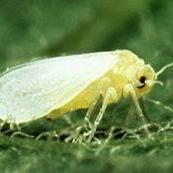Integrated Pest Management (IPM)
IPM principles
Integrated pest management (IPM) is a strategy that encourages the reduction of pesticide use. It does this by employing a variety of pest control options to contain or manage pests below their economic injury levels. These options include:
- biological control
- cultural control
- varietal selection
- chemical control
The aim of IPM is to maximise the use of biological control. Other control measures, especially chemicals, must play a supportive rather than disruptive role. Chemicals should not be used on a ‘calendar’ basis but strictly when needed, as defined by systematic pest monitoring. Selective rather than broad spectrum chemicals should take preference. The aim is to produce high quality marketable produce by intelligently using the various control options to manage pests.
Advantages of IPM
The advantages of IPM are:
- reduced development of pesticide resistance
- reduced health risk to spray operators
- reduced chemical contamination of food and the environment
- reduced dependence on chemicals; hence IPM is a step towards sustainable agriculture
- better plant health giving improved quality and production




